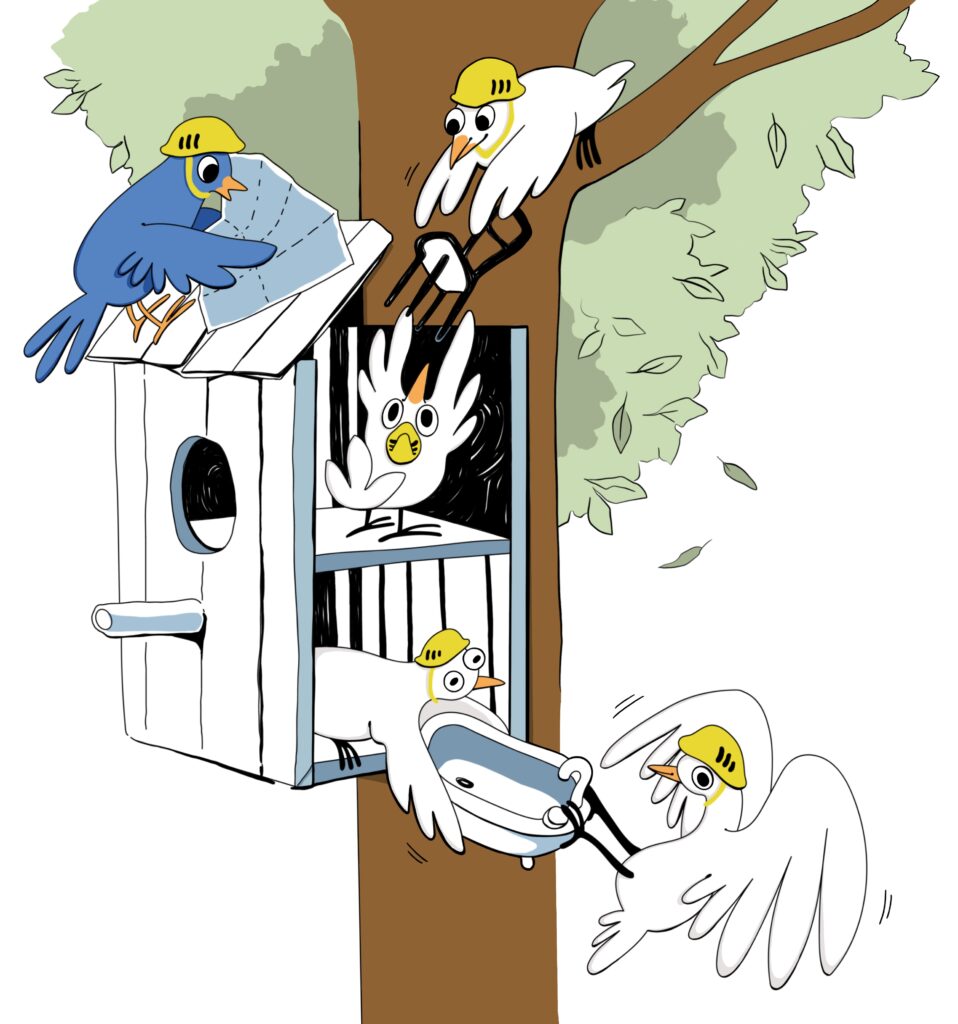- Career Hub
- Future Skills
- Academic planning
- Planning further studies
- Planning your studies
- How to manage your studies?
- How to plan for your studies?
- How much freedom do you have to modify your studies?
- When to make learning choices within the curriculum?
- How little or how much can you study?
- How can you concentrate on and manage the time of studies?
- How to change specialisations?
- How to study well?
- Internship
- International experience
- Work-life development
- Act and grow
Cooperation skills
Cooperation is the ability to work with people towards common goals, to negotiate them, to share tasks and responsibilities between team members and to put plans into action. One of the foundations of cooperation skills is empathy – paying attention to the feelings and needs of others in an understanding and supportive way. A cooperative person is able to build strategic partnerships, engage different parties and negotiate. Successful collaboration requires skilful management, including delegating and coordinating work, motivating those involved and giving them feedback.
A cooperative person can spot unequal treatment, discrimination, harassment or similar situations. They know how to intervene and create a safe environment for different views to be expressed. They find common ground in disagreements, find compromises and resolve conflicts.

| A moment of reflection: What difficulties have you encountered in previous cooperation situations and what would you do to make future experiences more fruitful? What are your strengths and weaknesses when working with others? Do you take the lead in group work or do you prefer to leave the leadership tasks to others? Are you able to analyse yourself and your work in a meaningful way to make it effective? Do you know how to involve others at different stages of work? |
Inspiration to take action
- Make day-to-day work in teams meaningful. Among other things, give constructive feedback on each other’s work and help each other achieve the end result.
- Volunteer at the start of the academic year to support first-year students.
- Try team games with friends, such as visiting an escape room. Notice your team members’ strengths and weaknesses and see how they affect the way you work together.
- Take part in brainstorming sessions (such as hackathons), where teams are formed and tasks are shared.
- Take a look at the good practices at the university, as well as the equal treatment guide, which explains how to create a safe environment in a team.
- Volunteer in youth or community work, look for volunteering opportunities at the university.
- Get involved in different organisations (in Estonian) or clubs, in a choir, orchestra, band or join a university sports team.
- Help organise charity events, e.g. the Spring Run, a fundraising campaign, the “Let’s do it” collective action, Tartu Student Days.
- Participate in the LEADER programme. It gives you a lot of skills, including the experience of working with representatives of other faculties of the university.
- Participate in the management of an NGO or an academic or research project. Be a UT Student Union student representative for at least one year.
- Take a look at the workshops of the Counselling Centre and choose the ones that give you the chance to get involved in teamwork.
- Read the articles on the Counselling Centre’s webpage on ways of helping yourself (in Estonian).
